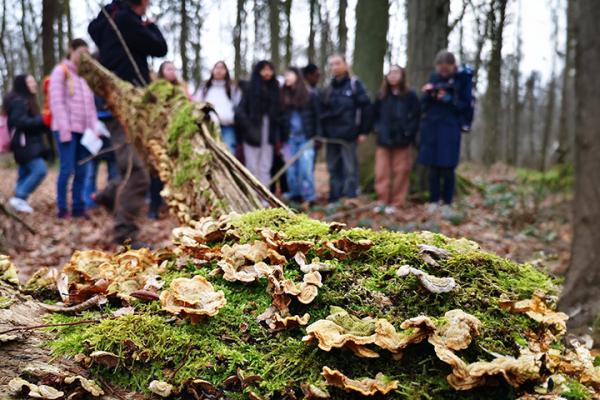The researchers who crossed borders for science
‘In terms of research it is quite important that you are exposed to different ways of working, different people and different cultures, because in the end research is highly collaborative and interdisciplinary,’ said Spanish neuroscientist Dr Xoana Troncoso. ‘If you stay in the same place throughout your career you are going to miss things that you didn’t even know existed.’
Dr Troncoso first travelled from Galicia in Spain to the UK to complete her PhD studies, and then went to the United States where she took two postdoctoral research positions, one in Phoenix, Arizona, and one at the California Institute of Technology.
In 2012, she received a Marie Curie award to come back to Europe to study how the human brain uses vision to interpret motion at France’s national science centre CNRS. Her research forms part of the EU’s Future Emerging Technologies project BrainScaleS, which is trying to understand how the brain processes information and the implications for bio-inspired computing.
The 37-year-old hopes that the fact that she is now managing a Marie Curie grant will put her in a good position to secure one of Europe’s highly sought-after permanent research posts.
Early help
The EU has been helping researchers like Dr Troncoso since the early days of the Framework Programmes. Along with the First Framework Programme in 1984 came the launch of a programme called Stimulation, which – while promoting basic research – was designed to encourage the networking and mobility of researchers.
For example, it offered funding to those who wanted to collaborate on projects, or grants to young researchers who wanted to broaden their outlook by attending conferences abroad. Marie Sklodowska-Curie actions have been designed to promote excellence in research by giving grants to scientists who needed to move country to further their careers.
“‘If you stay in the same place throughout your career you are going to miss things that you didn’t even know existed.’
Stimulation was renamed Science in the Second Framework Programme. While budgets increased, so too did the focus on the career- fostering aspects, explained Manuela Soares, Director of the Transport programme at the EU’s Directorate-General for Research and Innovation. ‘In the Science Programme the emphasis was on accepting project proposals from scientists, the bottom-up approach,’ she said. ‘But the emphasis changed with each programme.’
Stimulation and Science paved the way for what is widely considered the EU’s greatest contribution towards individual careers: the Marie Curie actions of the Sixth Framework Programme in 2002.
Named after the Polish scientist who overcame tremendous societal odds to pioneer research into radioactivity – and to win Nobel Prizes in both physics and chemistry for her discoveries – the Marie Curie actions were designed to promote excellence in research by giving grants to scientists who needed to move country to further their careers.
Now called the Marie Sklodowska-Curie actions (MSCA) within Horizon 2020, the programme allows researchers at any stage of their career – irrespective of their age or nationality or field of work – to gain experience in laboratories, universities, and non-academic settings provided that they are internationally mobile.
Mobility is a crucial requirement for scientists given the hugely collaborative nature of science itself. Working in a research institution in another country can enrich a researcher’s career although it is not always easy in a continent of such varying languages and cultures. Still, along with its predecessor, the MSCA programme has helped so far some 80 000 researchers overcome these barriers. During the Seventh Framework Programme alone it funded 10 000 PhDs.
‘It came gradually, but today Marie Sklodowska-Curie is seen as a benchmark of excellence,’ said Soares.
Other support
The MSCA programme may be the chief initiative that has helped researchers’ careers, but it is not alone. Collaborative research projects and grants from the European Research Council, for example, have also made an important contribution.
In addition, the EU has adopted a European Charter for Researchers and a Code of Conduct for the Recruitment of Researchers, both of which outline certain principles concerning the respective roles and responsibilities of researchers and their employers.
Dr Troncoso believes the facilities are in place for researchers to help them adapt to each new country, however she fears that there is still too much uncertainty for researchers on whether they can secure one of a dwindling number of fixed positions after having travelled around Europe or further afield.
‘At some point you need to settle down,’ she said. ‘That’s something that science needs to figure out.’




